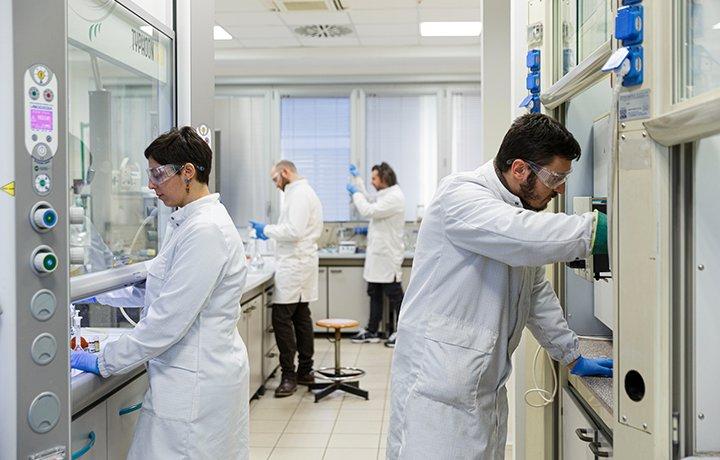With more than a decade of experience in agrochemicals and its GLP certification, Renolab can support all the needs for biocides registration analysis.
The European legislation defines a biocide as a chemical substance or microorganism intended to destroy, render harmless, or exert a controlling effect on any harmful organism. The category is very broad and now divided into 22 categories according to ECHA guidelines.
Both the introduction of Regulation (EU) No 528/2012 on biocides and the COVID-19 pandemic have led to new regulatory requirements and created the perfect storm for the introduction of many new biocidal products to the market. Unclear and contradictory regulations and guidelines have led to chaos among producers, who are in need of very different kinds of services, i.e. physio-chemical analysis or efficacy testing on newly formulated products. Moreover, National guidelines coming from a formerly low regulated environment now clash with International guidelines, bringing the need for a targeted support.
Producers are facing new challenges, such as deciding which kind of analysis they need to perform, including higher standards in quality control and new regulatory bodies for their products.
Working with several consulting agencies, Renolab can perform a tailored set of tests, avoiding unnecessary analyses and minimising the risk of rejection from authorities.
Chemical-physical analyses can be performed on any kind of formulation – from gel to aerosol – and efficacy testing is available for bacteria, fungi and virus. As a part of the Tentamus network, any workload can be satisfied.
About Renolab s.r.l.
Renolab is an analysis laboratory with in-depth experience in performing analyses in accordance with GLP. The laboratory complies with the Italian Ministry of Health directives for chemical and physical characterizations, and for residue studies on agrochemicals, biocides, cosmetics, drugs, additives and other industrial chemical products. Renolab’s microbiological studies also comply with the OECD principles, European directives and Italian legislation.
Tentamus Group GmbH was founded in 2011. Tentamus is a global product and safety group with a core presence in Europe, UK, Israel, China, Japan, India and the USA. Accredited and licensed Tentamus Group tests, audits and consults on all products involving the human body (food & feed, pharmaceuticals & medical, agrosciences, cosmetics, agriculture & environment and nutraceutical & supplements). Tentamus Group is represented in over 80 locations worldwide. More than 3,000 highly-trained staff members work in over 3 million square feet of laboratory and office spaces. For further information please visit www.tentamus.com.
www.tentamus.com
Tentamus Group GmbH
An der Industriebahn 26
13088 Berlin
Telefon: +49 (30) 206038-230
Telefax: +49 (30) 206038-190
http://www.tentamus.com
Head of Physical-Chemical Department at Renolab
Telefon: +39 051 0301140
E-Mail: mattia.lodi@renolab-glp.com
![]()
